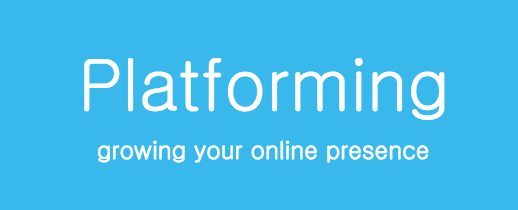Social media is an important part of building a writer’s platform. With existing networks changing and new networks launching, it can be easy to fall behind or get distracted with your social media strategy. Avoid these three mistakes as you manage your social media and build your platform.
1. Not using a social media scheduler
You’re guaranteed to waste time if you hop on and off your networks to post updates. Hootsuite is one of the best and simplest schedulers, allowing you to connect up to five social media networks with their free plan. It also shows different network feeds, making it easy to share curated content.
Buffer is another great scheduler, although their free version only connects one network. Their most economical paid option, however, allows you to connect ten profiles including Facebook groups and multiple Twitter accounts.
If money isn’t an object and you want a top-shelf scheduler, check out Edgar. You can connect multiple social media accounts and posts can queued and recycled on different networks.

2. Not using a news aggregator
Think of a news aggregator as your personal newsstand, particularly for the blogs you follow. Feedly is one of the most widely utilized aggregators. Once you set up your account, copy the sites you want to follow and read all the posts within Feedly.
You can also organize your sites and have folders for specific interests. This is particularly helpful for research or for keeping up with agents, publishers, or other writer friends. Best of all, Feedly is free.

Disclaimer: It’s still good to subscribe because of the benefits to being on an email list. But with so many people choosing to email an excerpt of their post, consider the time it takes to open the email, click to the site and wait for the page to load. It’s quicker to read the content on Feedly and then click over to the site if you want to leave a comment.
3. Not setting a timer
 Even if you use a scheduler and an aggregator, it’s still easy to get sidetracked. Decide how much time you can spend scheduling posts and reading other people’s material. Set your timer and then STOP when it goes off.
Even if you use a scheduler and an aggregator, it’s still easy to get sidetracked. Decide how much time you can spend scheduling posts and reading other people’s material. Set your timer and then STOP when it goes off.
Taking control of your social media will keep you focused on your tasks and free up more time for writing.
What are your best tips for managing social media?
Please share in the comments!

[bctt tweet=”3 Mistakes to Avoid With Your #SocialMedia Strategy, @a3forme @susanrstilwell #writer” via=”no”]
[bctt tweet=”Why a #writer needs a news aggregator like Feedly, via @a3forme @susanrstilwell #platform” via=”no”]
[bctt tweet=”How social media schedulers benefit a #writer, via @a3forme @susanrstilwell #platform”]
[bctt tweet=”Time management tips for social media, via @a3forme @susanrstilwell #writer #platform” via=”no”]
Stopwatch image credit: Pixabay
Resources:
Schedulers: Hootsuite, Buffer, Edgar
News aggregator: Feedly





3 Comments
Good info. I’ve never heard of news aggregators. How do they fit into the publication strategy of a book?
Hi A.D., Think of an aggregator as a custom news folder: all the info that’s pertinent to YOU in one place. You don’t have to bounce from site to site looking for posts.
As far as a publication, I can’t think of a specific strategy but an aggregator can help you keep current with publishing and marketing trends.
For example, writers benefit from following agents and editors. Feedly allows you to create a collection, and then you’d add the sites of those agents and editors you follow. To stay on top of the latest marketing strategies, you’d create a collection of marketers. When it’s time to put together a launch for your book, you could create a collection of potential team members.
Here’s a screenshot from my Feedly account:
https://www.almostanauthor.com/wp-content/uploads/2016/03/Feedly-screenshot.png
Feedly displays the posts within its site, which saves a lot of time!
That’s great to know Susan. Thanks! I don’t follow any agents or editors, but perhaps I ought to look into doing so.